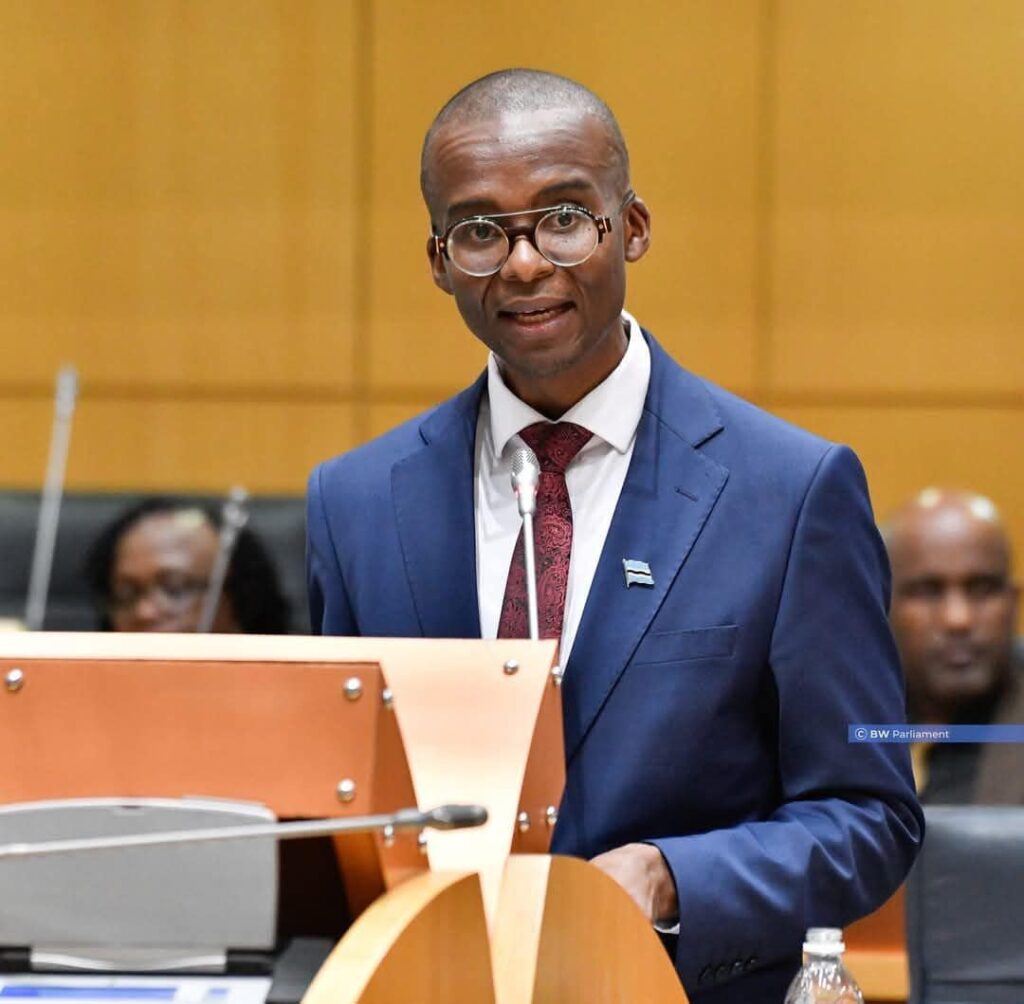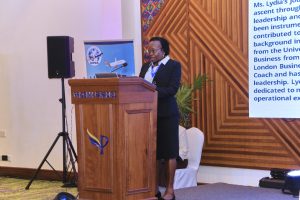As Botswana’s Minister of Finance delivers his maiden budget speech, what are the prospects for infrastructure finance?

In his much-anticipated budget speech for the 2025/2026 financial year, Botswana’s Minister of Finance and Vice President, Ndaba Gaolathe, laid out the government’s strategic priorities for infrastructure development, economic growth, and social transformation. With a proposed budget of P23.75 billion aimed at modernizing the country’s infrastructure, the speech revealed ambitious plans for road networks, renewable energy projects, digital connectivity, and social infrastructure improvements. However, as Botswana gears up to position itself as a regional logistics and energy hub, questions linger about the alignment of these proposals with broader continental infrastructure strategies, particularly the Program for Infrastructure Development in Africa (PIDA).
PIDA’s overarching mission is to foster sustainable infrastructure across Africa by promoting regional integration, cross-border connectivity, and climate-resilient projects. As Botswana embarks on its infrastructure transformation, how well does its budget align with PIDA’s objectives? Let’s take a closer look.
Below, the coordinator of Program for Infrastrcuture Development in Africa (PIDA) Media Network Baboloki Semele reviews and Interrogates the Botswana 2025/2026 Budget Speech from the Perspective of PIDA (Program for Infrastructure Development in Africa)
Minister of Finance’s Strategic Priorities:
The budget speech highlights Botswana’s commitment to infrastructure modernization, with a focus on roads, energy, digital connectivity, and social infrastructure. It emphasizes the need for enhancing public-private partnerships (PPPs) to accelerate infrastructure delivery, which aligns well with PIDA’s goals. However, there are several points where the budget could be aligned more directly with PIDA’s overarching objectives of regional integration, sustainable infrastructure, and cross-border connectivity.
Positive Alignment with PIDA Objectives
- Modernising and Transforming Infrastructure (BWP11.54 Billion Allocation):
- Regional Connectivity and Transportation: The budget proposes substantial investments in road networks, including strategic projects such as the construction of roads and upgrading of transport facilities. This is aligned with PIDA’s goal of improving cross-border transport and logistics infrastructure to enhance trade and regional integration. For instance, the roads being built in various areas (e.g., Tshesebe-Mosojane-Masunga Road, Francistown-Nata-Maun) will facilitate the movement of goods and people, which is essential for a regionally integrated Africa.
- Energy Projects: The focus on renewable energy, particularly solar power, aligns with PIDA’s goal of achieving energy access for all through sustainable projects. Botswana’s initiatives to expand solar energy projects and integrate renewable energy into the national grid align with the Africa-wide push for clean, reliable energy as part of PIDA’s infrastructure goals.
- Public-Private Partnerships (PPPs): The emphasis on PPPs as a mechanism to fund and implement infrastructure projects is in line with PIDA’s focus on leveraging private sector resources to meet Africa’s massive infrastructure needs. The development of a legal framework for better PPP management further supports PIDA’s objectives of creating enabling environments for private sector involvement.
- Innovation and Digital Transformation (BWP1.47 Billion Allocation):
- Digital Infrastructure Expansion: The budget earmarks significant resources for bridging the digital divide in Botswana through projects like the Village Connectivity Programme, which aims to connect over 1,000 public facilities across the country. This aligns with PIDA’s focus on digital infrastructure and promoting seamless connectivity to enhance access to services, e-commerce, and trade, especially in rural and underserved areas.
- Satellite Services and Technology Neutral Licensing: The government’s focus on satellite communication services presents an opportunity to complement PIDA’s objectives in addressing connectivity challenges in remote areas, improving the inclusiveness of digital services, and facilitating regional communications infrastructure.
Key Loopholes in Alignment with PIDA Objectives
- Limited Emphasis on Cross-Border Infrastructure Integration: While the speech mentions the importance of modernizing Botswana’s internal infrastructure, there is limited reference to integrating Botswana’s infrastructure with neighboring countries. PIDA’s focus on cross-border projects is critical for the continent’s integrated infrastructure strategy, yet the budget does not explicitly address Botswana’s commitment to regional infrastructure projects such as transnational highways, railways, and energy networks that are central to PIDA’s goals.
- Recommendation: Botswana should explicitly commit to regional infrastructure projects, particularly those that link to neighboring countries (e.g., railway lines like the Limpopo Corridor and the proposed feasibility studies for the Mmamabula-Lephalale and Mosetse-Kazungula railways should focus on cross-border transport integration).
- Inadequate Focus on Climate Change and Sustainability in Infrastructure Development: While there is some emphasis on solar energy as a renewable resource, the broader environmental impact of infrastructure projects such as roads, energy generation, and buildings is not addressed in-depth. PIDA promotes the creation of environmentally sustainable infrastructure that contributes to climate resilience, but the budget does not outline clear strategies for ensuring that the planned infrastructure projects are climate-friendly, resource-efficient, or aligned with Africa’s broader climate adaptation strategies.
- Recommendation: The budget could include clear environmental guidelines for all infrastructure projects, especially in sectors such as energy (e.g., promoting a mix of renewable energy sources) and transportation (e.g., electric vehicles, green logistics solutions). A stronger focus on climate resilience is critical for aligning Botswana’s infrastructure strategy with PIDA’s long-term sustainability goals.
- Limited Regional Water and Sanitation Projects: While the budget addresses water supply and sanitation projects in local towns like Molepolole, Kanye, and Sowa Town, it does not highlight any regional water or sanitation initiatives, which are integral to PIDA’s objectives of improving intra-Africa cooperation and regional infrastructure solutions. Water scarcity and management are major issues across the continent, and Botswana could play a leading role in supporting regional water resource management.
- Recommendation: Botswana should consider aligning its water and sanitation infrastructure projects with PIDA’s regional water supply initiatives, especially in areas where water scarcity impacts neighboring countries. Cooperation on regional water management projects would strengthen Botswana’s infrastructure development and regional ties.
- Lack of Clear Alignment with Regional Transport and Logistics Initiatives: Although the budget focuses on improving Botswana’s road and rail networks, it does not explicitly mention regional transport corridors or how Botswana plans to connect its transport infrastructure to major African corridors, which is key to PIDA’s objectives of enhancing intra-Africa trade and connectivity.
- Recommendation: Botswana could explicitly reference its participation in the Trans-African Highway Network and other regional initiatives such as the North-South Corridor or the Southern Africa Development Community (SADC) transport and logistics master plan. This will ensure that Botswana’s domestic infrastructure projects align with PIDA’s regional integration objectives.
- Air Transport Strategy: The budget mentions efforts to enhance Botswana’s air connectivity through bilateral agreements and improving airport infrastructure, which is crucial for regional integration. However, the speech does not highlight Botswana’s role in regional aviation networks or the importance of intercontinental connectivity, which is a core part of PIDA’s transportation goals.
- Recommendation: The budget could place more emphasis on Botswana’s participation in continental aviation initiatives, including regional airspace integration, and the improvement of regional airports, which would further align with PIDA’s objectives of enhancing air transport connectivity across Africa.
Conclusion:
Botswana’s 2025/2026 budget speech showcases significant strides toward modernizing national infrastructure, with positive alignments with PIDA in areas like renewable energy development, road construction, and digital transformation. However, there are notable gaps in cross-border infrastructure integration, climate resilience, and regional water and transport projects that should be prioritized for a more robust and comprehensive alignment with PIDA’s objectives.
The government’s commitment to PPPs, expanding digital connectivity, and renewable energy is promising, but for Botswana to fully contribute to the African integration and sustainable development agenda, it must ensure that its infrastructure projects consider broader regional impacts, sustainability, and cross-border cooperation.





